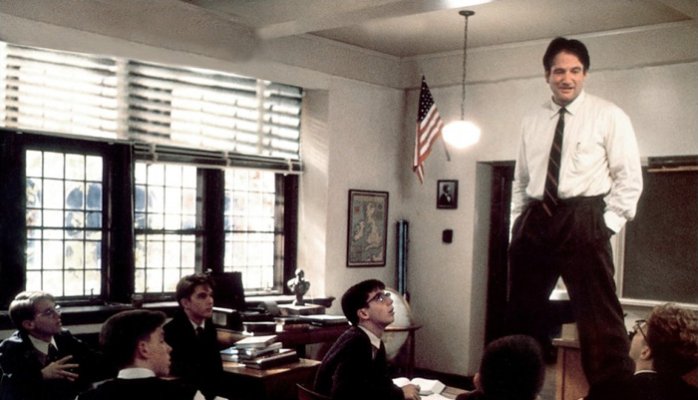|
Good teachers don’t exist.
At least not in a meaningful way. This is largely semantic, but think about what would make a teacher a “good” teacher. How do you provide evidence that someone is a good teacher? One place to start would be with asking stakeholders. Which stakeholders matter in deciding it? School districts? Administration? Fellow teachers? Parents? Students? The teacher his or herself? All of the above? All of the above would be too high a standard as no one would be a good teacher if all the stakeholders had to agree completely. So perhaps some percentage of the stakeholders? Is a simple majority of 51% enough? What if 90% of the administration, fellow teachers, and parents believe a person is a good teacher, but zero percent of the students do? Does the teacher still count as a good teacher? What if 100% of the students feel someone is a good teacher, but none of the adult stakeholders do? This can get more complicated by a further step. What if all the stakeholders mentioned above agree someone is a good teacher using 51% as the percentage threshold in one location, but not another? If all stakeholders in a public, San Diego, suburban high school agree a person is a good teacher and he or she moves to a private, Beijing, urban high school and none of the stakeholders believe he or she is a good teacher, who is right? Is this another question of percentages? Do we need 51% of locales around the world to agree a person is a good teacher? The above is premised on stakeholders having some kind of final say, but is that reasonable? Perhaps total societal welfare is a better metric. What if all the stakeholders mentioned above believed a person was not a good teacher, but total welfare in society actually goes up because of the person’s teaching? This might be seen in an example where a teacher focuses on creativity and innovation to the detriment of time spent on the standard curriculum. Perhaps the teacher is even fired for neglecting pre-written standards regarding math and language, but winds up sparking the next Facebook or Apple CEO. Would that teacher be a good teacher even though no one else recognizes them as such and actually lays them off? All of the above conflicting goals and agendas makes it impossible to state categorically if a person is a good teacher. I have found that generally speaking, being a good teacher is simply a process of doing what one is told by administration while trying to make parents and students feel good. In terms of achieving a job description, that seems to work. Since that job description changes at each school, it looks different everywhere you go. Am I good teacher? I can’t tell you that. The strongest claim I can make is that I’ve never been fired or had any major problems. I don’t think my students hate me or my class, but maybe they’re just better poker players than I am. Some are definitely bored, but I would be too if I were forced to take an art class for example. It’s just not my cup of tea. To each their own. Can I teach a particular subject well, say math or economics? That depends too. If you are interested, then sure. If you aren’t, it probably doesn’t matter. That differs from tutoring where essentially every student is “interested” in that they personally pay me and take the time to show up and listen. In a room of students, that isn’t the case. Some will listen and want to learn, others will look like they are, but aren’t, and still others will actively disengage altogether. I have the impression that teachers tend to have an overinflated sense of themselves. I would argue there are very few good teachers, based on metrics that matter to me, but most teachers probably feel they are pretty good or above average. It’s the Lake Wobegon effect popping up. In reality, most teachers could be replaced by the average caring adult and not be missed at all. The marginal effect of any one teacher is almost zero. I’d say it’s much more important to weed out potential problems from teaching than anything else. It’s much clearer that we can have truly bad teachers, ones that damage and harm students either physically or emotionally. The marginal effect in those cases is very high and very negative. It’s much less clear going the other direction. So give me your thoughts. What makes a good teacher? Is it universalizable or always specifically context dependent? Is there any meaningful sense to the phrase?
0 Comments
Leave a Reply. |
Archives
November 2017
|

 RSS Feed
RSS Feed